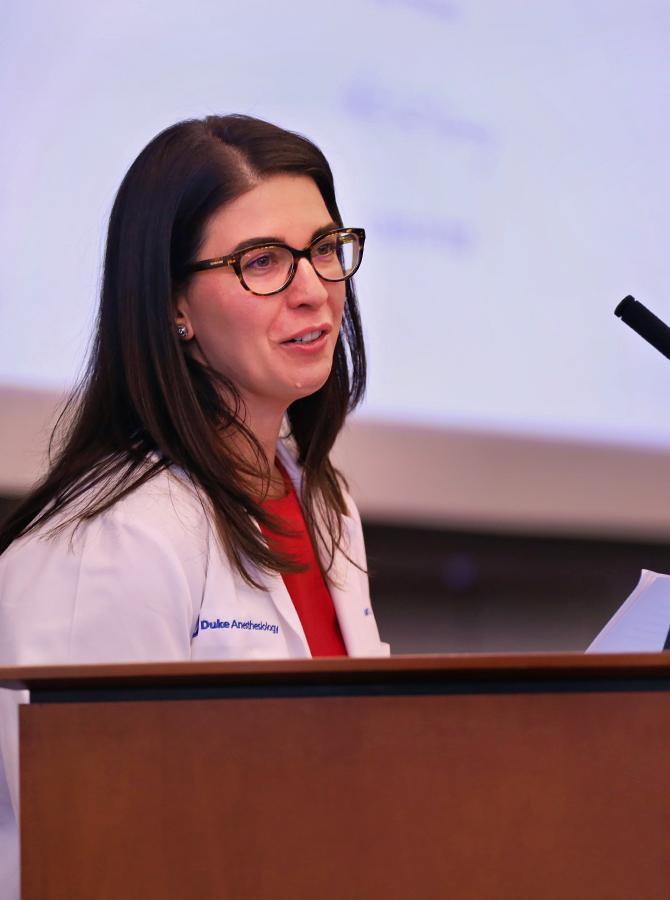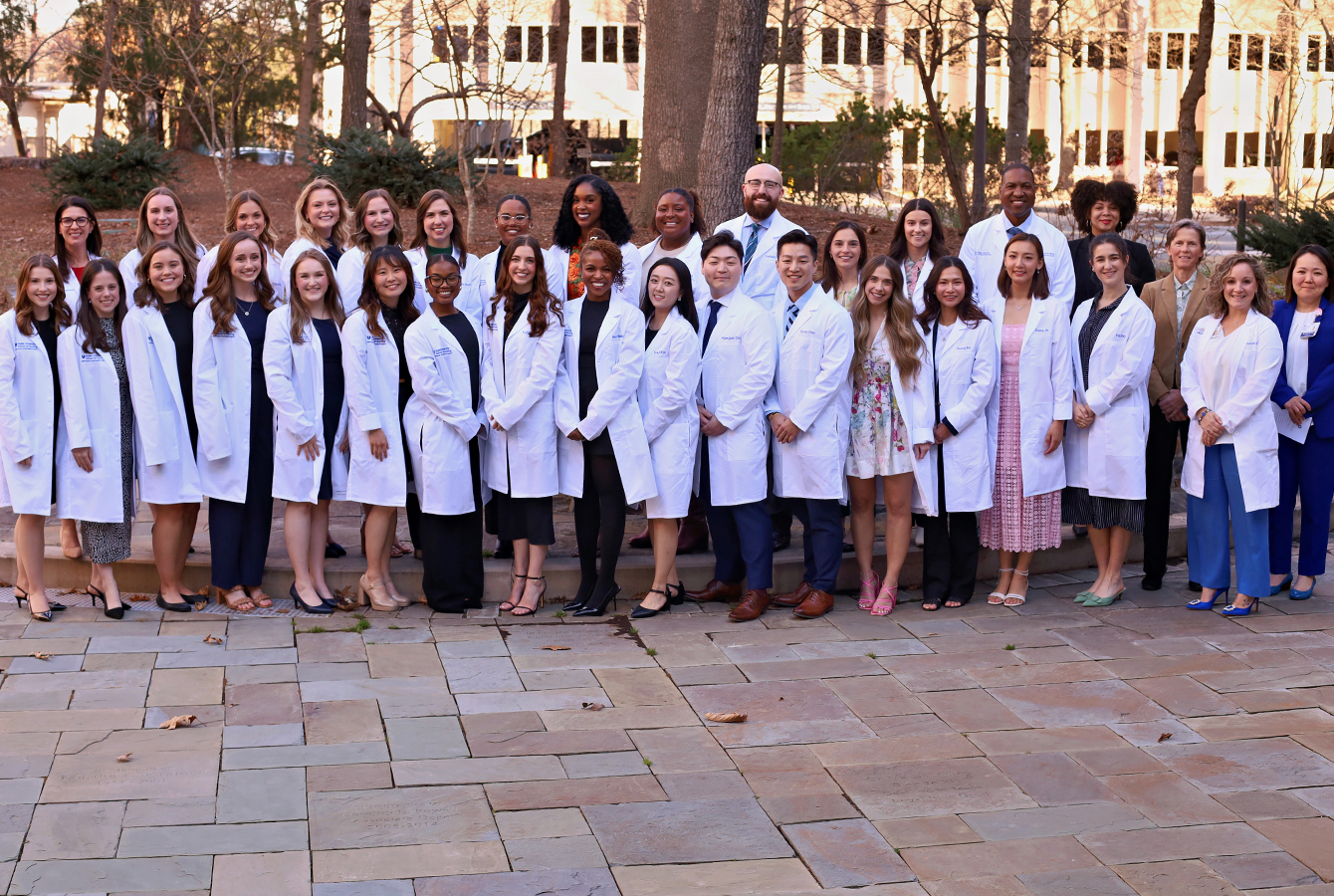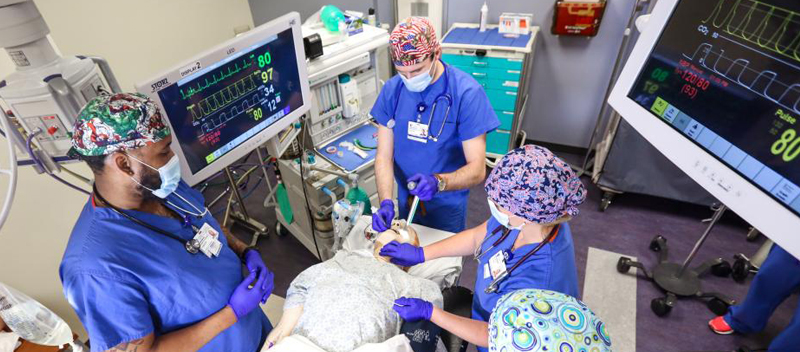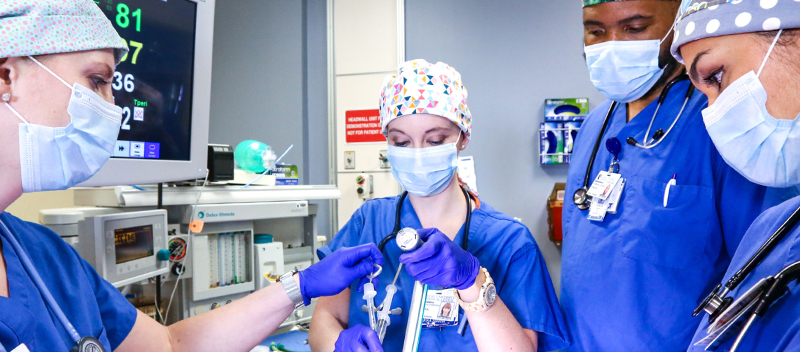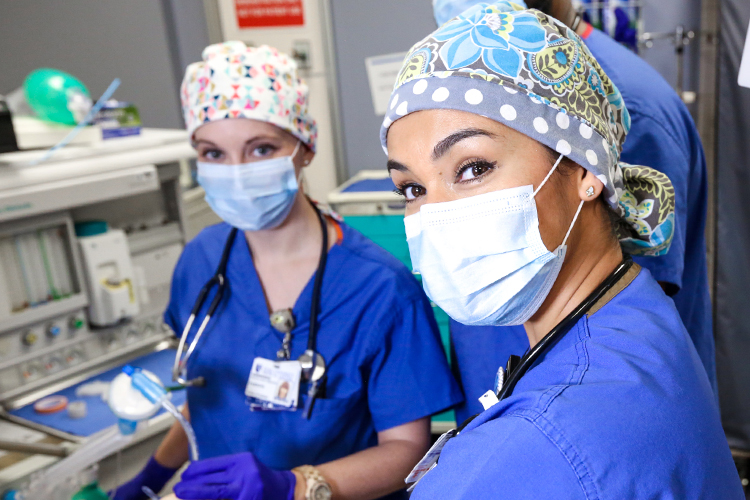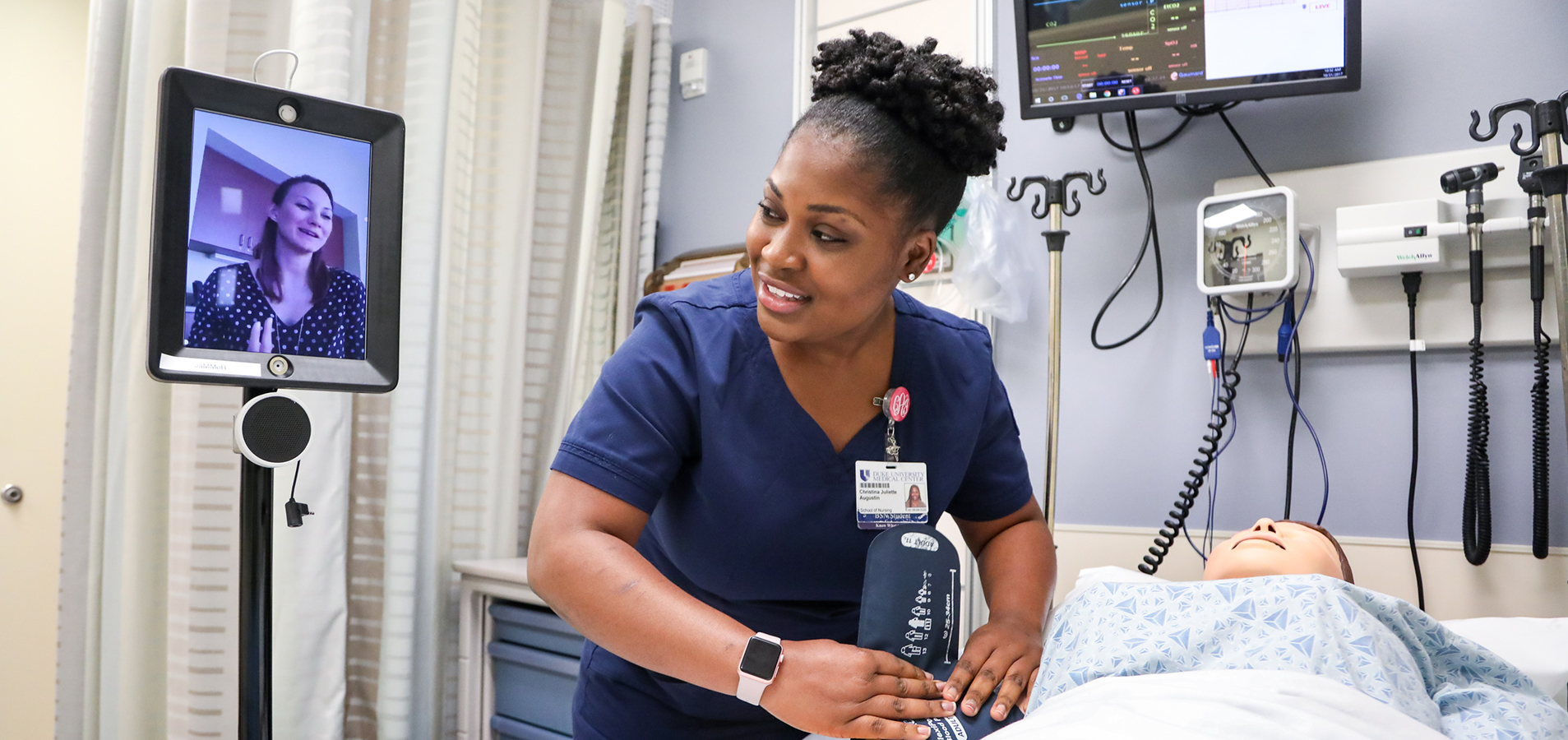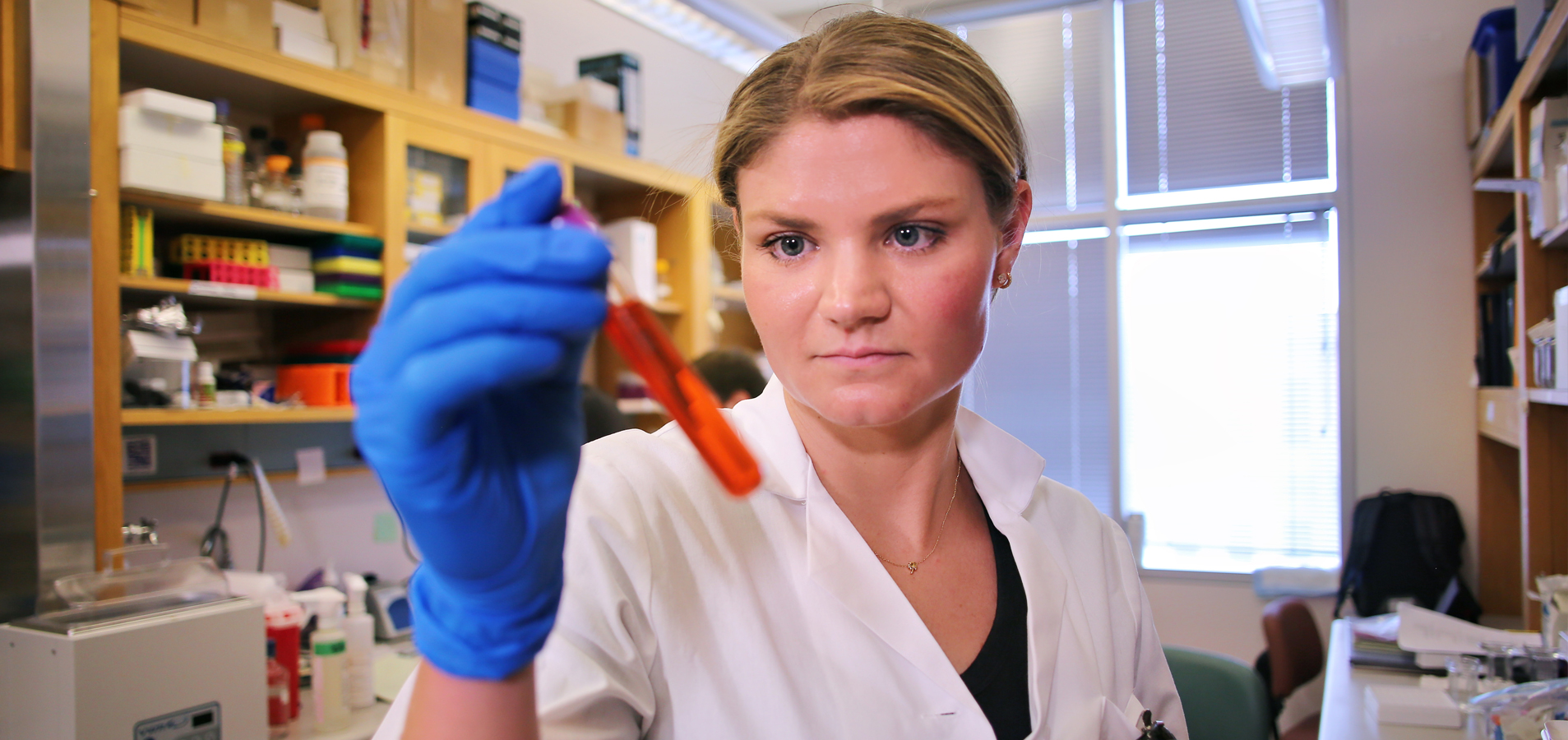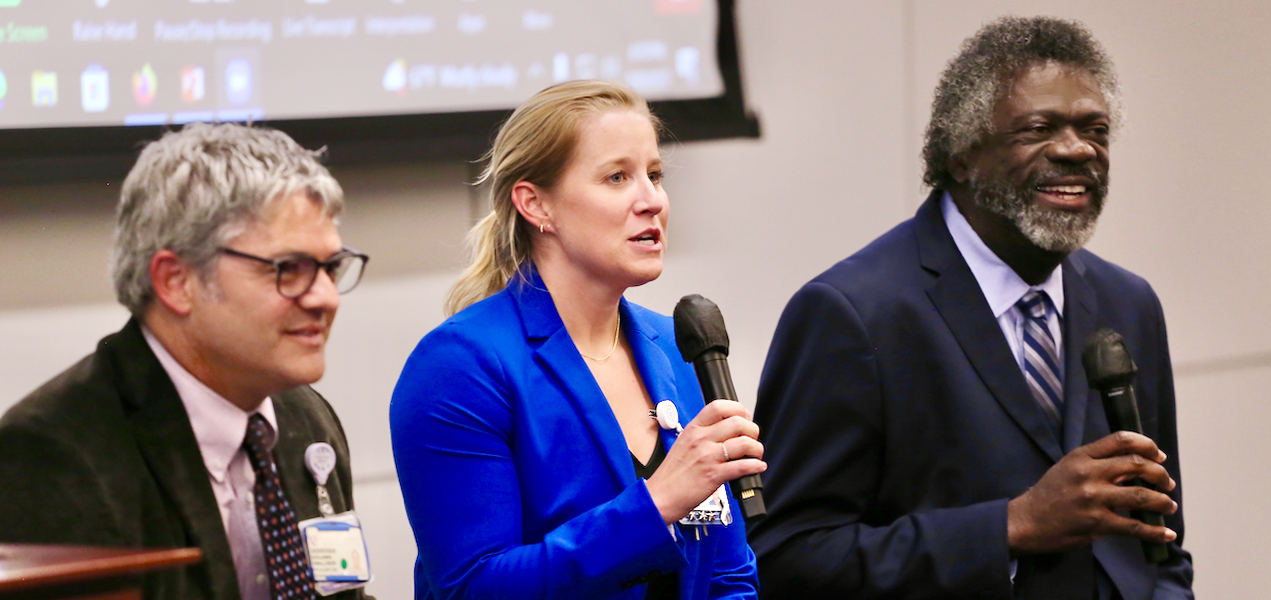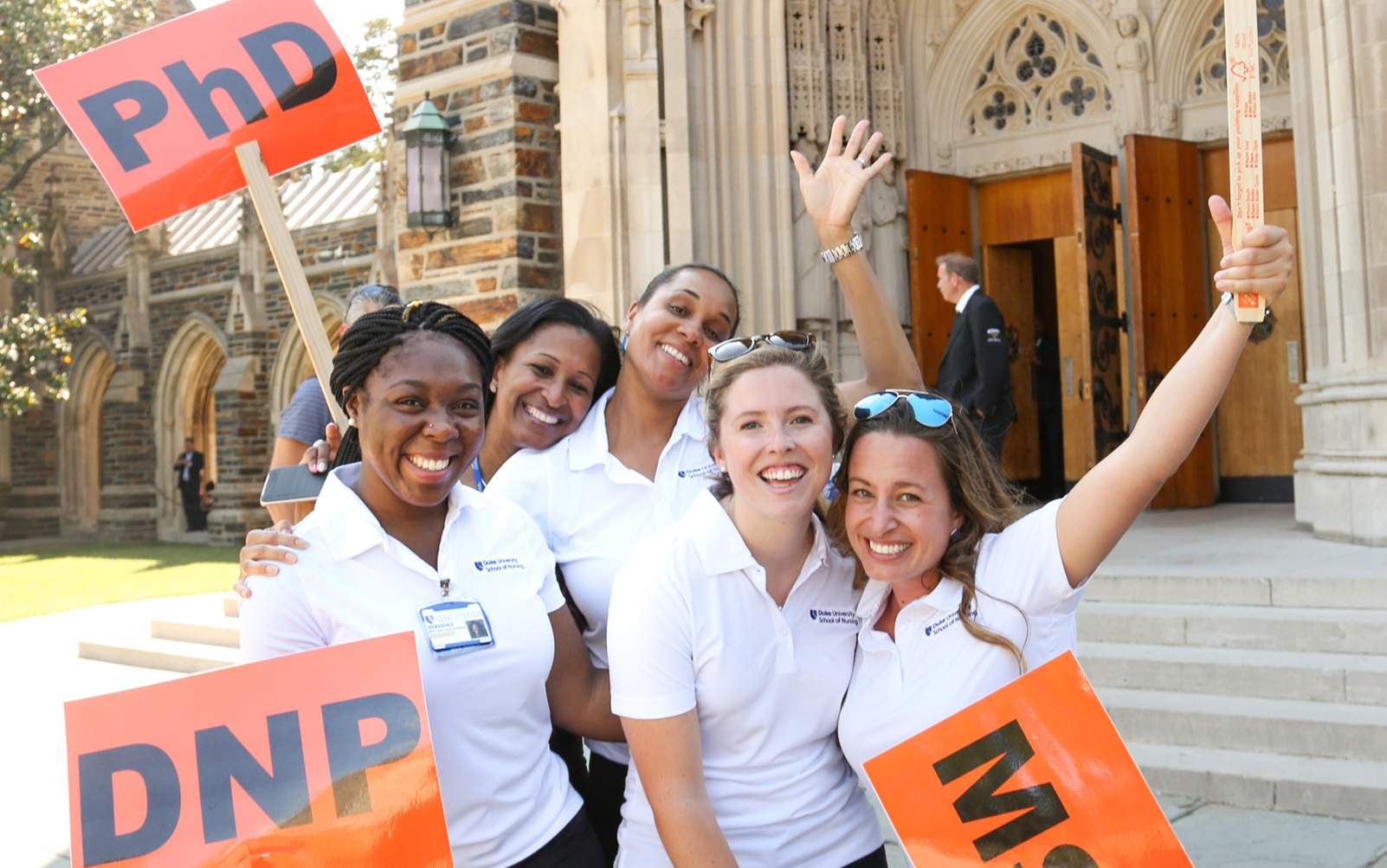Deliver confident care in any environment with Duke University’s Nurse Anesthesia DNP.
The Nurse Anesthesia DNP program at Duke University School of Nursing prepares you to confidently practice autonomously in any environment and thrive in a fast-growing field. Contribute to the latest evidence-based practices, utilize high-fidelity simulation and cadaver labs, make lifelong connections and learn about professional responsibilities, all of which will shape the future of nurse-led care.
Our future-focused nurse anesthetist program equips you with the skills needed to deliver anesthesia to patients across the lifespan. We’re committed to developing nurse leaders and innovators who transform health care by advancing health equity and expanding access to treatment.
At Duke, you’ll find unmatched opportunities and resources to equip yourself as a nurse anesthetist. Our diverse, mission-minded program works to advance health equity and social justice through an innovative educational experience, preparing you for a successful career as a certified registered nurse anesthetist.
Nurse Anesthesia DNP Highlights
Find world-class resources and practicing clinical experts ready to go the extra mile in our forward-thinking nurse anesthesia program:
Comprehensive anesthesia training:
Duke CRNA students are exposed to a wide variety of cases and patient scenarios. Gain hands-on experience in various practice settings and patient populations, including active duty military hospitals, Department of Veterans Affairs health care facilities, rural hospitals, academic medical centers and ambulatory surgery centers.
World-class simulation experience:
Utilize the Center for Nursing Discovery, our state-of-the-art simulation facility that is accredited and endorsed by two international simulation professional organizations. Integrate textbook knowledge with hands-on experiences to confidently deliver compassionate care in diverse and complex health care environments.
Unmatched experiential learning:
Participate in a faculty-led, full-semester cadaver course that includes two Ph.D.-prepared anthropologists. This experience, combined with 24/7 access to simulated operated rooms, enhances your understanding of 3D anatomical structures, bolstering your practical knowledge and providing invaluable preparation for clinical settings.
What Can You Do as a CRNA?
Duke’s CRNA program equips you to meet an increasing demand for skilled nurse anesthetists. With our Nurse Anesthesia DNP, you’ll be prepared for versatile and rewarding career opportunities in a wide range of settings, including:
- Clinical practice: The most common path for CRNAs is to work in clinical practice, administering anesthesia for surgeries and procedures in various health care settings. This could include hospitals, outpatient surgery centers, labor and delivery units, dentist’s offices and more.
- Specialization: After gaining experience, CRNAs can choose to specialize in a specific area, such as pediatrics, cardiology or obstetrics. Specialization may allow employment in specialized facilities and potentially higher salaries.
- Education and research: Some CRNAs choose to pursue careers in education, teaching nursing students or other health care professionals about anesthesia. They may also become researchers to improve anesthesia practices.
- Leadership roles: CRNAs with experience and leadership qualities can take on leadership roles within health care organizations. This could involve managing teams of nurses, developing anesthesia protocols or advocating for the CRNA profession.
The U.S. Bureau of Labor Statistics (BLS) projects job opportunities for nurse anesthetists to grow up to 38% by 2032, making it one of the fastest-growing career fields in the country. While exact figures vary depending on location, level of experience and other factors, the BLS reported a median annual salary of $212,650 for nurse anesthetists in 2023.
Program Director
Jessica Szydlowski
DNP, CRNA, MSN, ACNP
Assistant Dean, Nurse Anesthesia Program
As an advocate for the nurse anesthesia profession, she has served in various state and national professional leadership roles, working with policymakers and legislators to promote the practice of nurse anesthesia. Currently, in her role as Federal Political Director for the North Carolina Association of Nurse Anesthetists, she has been able to incorporate advocacy and policymaking within the School of Nursing community. She has served as Chair on 15 DNP projects, served on 21 DNP student committees and published 8 articles in peer-reviewed journals.
Learn more about Jessica Szydlowski: Scholars@Duke
Nurse Anesthesia DNP Admissions
Applicants must have at least one year (two years preferred) of current, continuous full-time acute care experience in a hospital setting and a bachelor’s degree in nursing from an accredited institution.
If you need additional assistance, contact our admissions team by email or phone: 877-415-3853.
We offer DROP-iN Chat for virtual Q+A Sessions along with PROGRAM INFORMATION SESSIONS for application help.
Student Testimonials
Nurse Anesthesia DNP Financial Aid and Scholarships
A Duke CRNA education is a worthwhile investment in your future and the advancement of equitable health care. We provide a variety of financial aid options, including scholarships, to make your education more affordable. For nurse anesthesia students, we offer scholarships based on merit and need to help lessen financial burden, enabling you to concentrate on your studies and career preparation.
Learn More About Financial Aid & ScholarshipsThe Duke University Nurse Anesthesia Doctor of Nursing Practice (DNP) Program is accredited by the Council on Accreditation of Nurse Anesthesia Educational Programs (COA), 10275 W. Higgins Rd., Suite 906, Rosemont, IL 60018- 5603; (224) 275-9130. The Duke Nurse Anesthesia Program received 10-year reaccreditation in October 2023. The program's next review by the COA is scheduled for April 2033. COA Hours of Operation: Monday through Friday from 8:00 a.m. – 4:00 p.m. CDT.
Student Achievement Indicators - Class of 2025
- Class of 2025 Attrition Rate = 7%
- Employment Rate for the Class of 2025 = 100%
- First-Time National Certification Exam Pass Rate for the Class of 2025 = 92%
- Five-year Attrition Rate (Classes of 2021 - 2025) = 6%
- Overall NCE Pass Rate = 99%
The program is 36 months in length.

